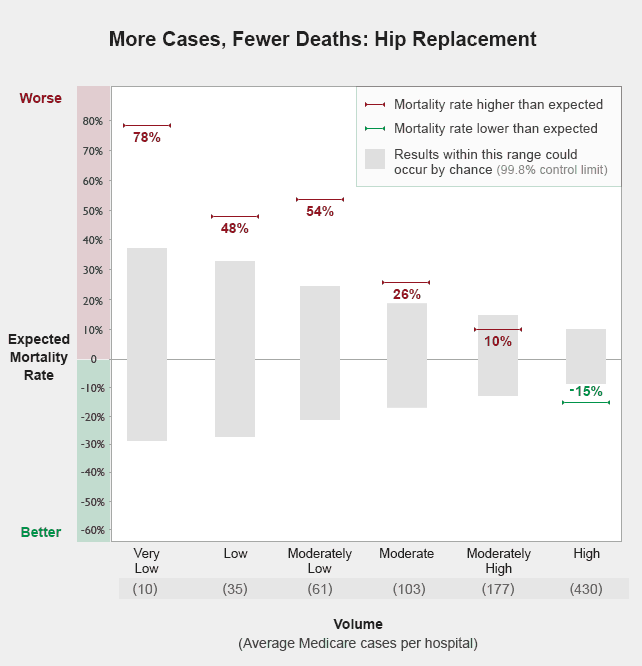To the uninformed, all hospital are the same for your hip replacement surgery. You go in, get the replacement, come out and all is well. If you look under the hospital gown a bit you might come to a different conclusion.
Jimi Hendrix Was Right In Asking, “Are You (Or, More Importantly, Your Orthopod) Experienced?”
One of my favorite quotes is below (at the bottom of this page, is the bonus video):
Conclusion – Select An Experienced Orthopod & Pay Them!
Normally the quote, “When a man with money meets a man with experience, the man with experience leaves with money and the man with money leaves with experience” isn’t perceived as a good thing. If you are having your hip replaced, this quote is a great thing… a high-priced orthopod can be a very good for you.
So, let’s apply…
When I needed my hip replaced, I could of had the surgery performed at the local hospital in my town of 60,000 people. I opted to drive an hour to a much larger city and use a hospital that performs hip replacements every day. I reasoned that more surgeries equals more experience equals better outcome.
As Many As 11,000 Deaths Could Have Been Prevented
According the US News & World Report they conclude that, “A calculation by Dr. John Birkmeyer, a surgeon who has produced pioneering research on the effect of patient volume, underscores the point. Using the U.S. News analysis, he determined that as many as 11,000 deaths nationally might have been prevented from 2010 through 2012 over the three years analyzed if patients who went to the lowest-volume fifth of the hospitals had gone to the highest-volume fifth.”
Note – This is for all surgeries, not just hip replacements.
They go on the state, “Elective hip and knee replacements are a prime example. Many urban centers routinely do hundreds a year. At Sterling, the three-year total for Medicare inpatients from 2010 through 2012 was 29 hips and 52 knees. And while the death rate for these operations is about 1 in 1,000 nationally, Medicare data in the U.S. News analysis show that the relative risk of death for the hospital’s elective knee replacement patients was 24 times the national average and three times the national average for hip replacement patients.
“You can save your life by picking the right place,” says Leah Binder, director of the Leapfrog Group, a consortium of major employers that emphasizes safety in measuring hospital performance.”
If your hospital looks like this,
Well, be careful.
Among the findings for those ultra-low-volume hospitals:
- 1,071 performed 10,686 hip replacements, an average of 3.3 per year per hospital.
- 608 performed 6,707 knee replacements, an average of 3.7 per year.
- 124 performed basic heart bypass surgery on 1,538 patients, an average of 4.1 per year.
- 254 hospitals performed heart bypass surgery involving valve replacement or repair on 3,203 patients, an average of 4.2 per year.
- 396 hospitals treated 4,626 cases of heart failure, an average of 3.9 per year.
- 558 hospitals treated 7,174 cases of chronic obstructive pulmonary disease, an average of 4.3 per year.
Bonus video…


